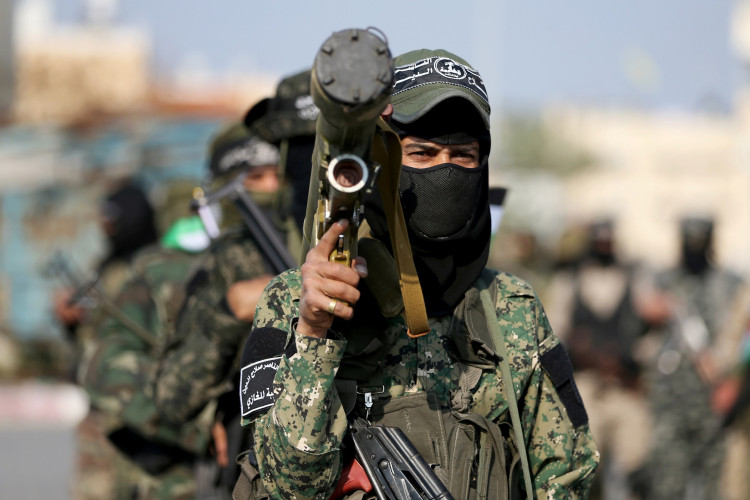In a significant development amid ongoing hostilities, reports have emerged of a potential breakthrough in negotiations aimed at establishing a temporary cease-fire between Israel and Hamas. This tentative agreement also encompasses a significant prisoner-hostage exchange, signaling a possible de-escalation of the conflict that has ravaged Gaza and stirred international concern.
Israeli media, citing unnamed sources, revealed that Israel's War Cabinet had convened to deliberate on the proposed truce, which was reportedly given a tacit nod. The plan, still under wraps and subject to further discussions in Qatar, involves mediators from the United States, Egypt, and Qatar, all playing pivotal roles in bridging the gap between the conflicting parties.
Hamas, through its top political leader Ismail Haniyeh, has indicated that while it has not been directly involved in the latest rounds of negotiation, the proposed framework aligns closely with its initial demands for a cease-fire. This development comes as Israel contemplates extending its military operations to Rafah, a move fraught with implications for the already dire humanitarian situation in Gaza.
Prime Minister Benjamin Netanyahu, in a statement, underscored the gravity of the situation, pledging to bring operational plans for Rafah to the Cabinet's table for approval. This statement highlights the precarious balance between military objectives and the imperative to mitigate civilian suffering.
The cease-fire proposal, as detailed by an Egyptian official speaking under the condition of anonymity, suggests a comprehensive pause in hostilities for six weeks. This hiatus aims to facilitate the influx of humanitarian aid into Gaza, addressing the acute shortages that have plagued the territory. The draft agreement also hints at a phased release of hostages and prisoners, with up to 40 hostages and 300 Palestinian prisoners potentially being exchanged in the initial phase.
The urgency of these negotiations is underscored by the looming commencement of Ramadan, a period traditionally marked by heightened sensitivities and potential for escalation. Both Israel and Hamas face mounting international pressure to reach a compromise that could avert further loss of life and deepen the humanitarian crisis.
Parallel to these developments, reports from Paris indicate that Israeli officials are cautiously optimistic about the prospects of a new cease-fire agreement. The discussions in Paris, involving American, Egyptian, and Qatari representatives, have reportedly laid the groundwork for a plan that might pave the way for a short-term truce and further hostage releases. This diplomatic endeavor underscores the complex interplay of regional and international actors in seeking a resolution to the conflict.
As these negotiations unfold, the plight of the hostages remains a poignant element of the crisis. Families of those held captive oscillate between hope and despair, clinging to the possibility of their loved ones' release. The broader context of the conflict, characterized by devastating human toll and widespread displacement, serves as a somber backdrop to these diplomatic efforts.
In the face of these challenges, calls for a post-war plan for Gaza have gained traction. The Biden Administration, among others, has urged Israel to consider the long-term implications of its military strategy, emphasizing the need for a sustainable solution that addresses the root causes of the conflict and paves the way for lasting peace.




